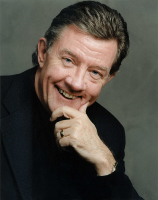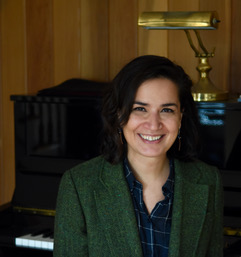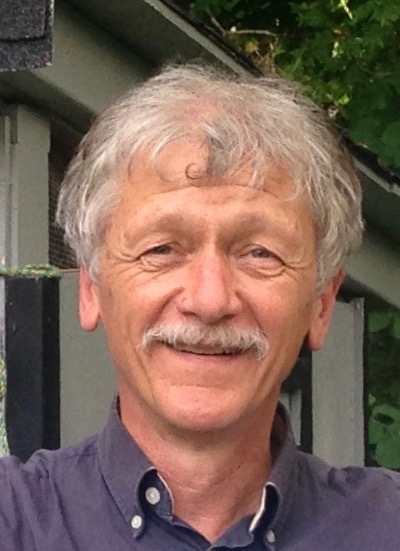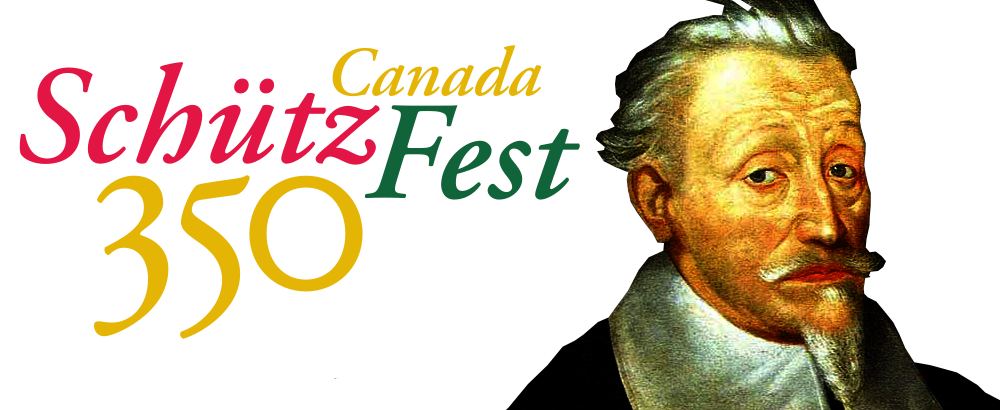SchützFest350 Pre-Recorded Videos
As part of an effort to provide our ticket holders of added value incentive, SchützFest350 will provide a FREE link to pre-recorded videos to each ticket purchaser. Below are detailed both the discussion topics of the videos as well as the participants. These videos will remain available till end-of-day November 15th, 2022. (* Link will be emailed to ticket purchasers by November 3rd)
*For those of you who would rather not purchase concert event tickets but wish access to these videos, a video access ticket may be purchased on the SchützFest350 Vimeo website: https://schuetzfest350.vhx.tv/schutzfest350-ticket-holder-series
SchützFest350 Lecture - pre-recorded video #1

"Heinrich Schütz’s Musikalische Exequien - An Introduction and Listener’s Guide"
Heinrich Schütz’s Musikalische Exequien (SWV 279–281), is one of the best-known and most striking works by a German composer of the 17th century. Written for a funeral in 1636, the three works that comprise it have become staples in the choral repertoire of early music. By situating the work in its historical and cultural contexts, supported by period documents, musical examples and English translation as much as possible, it is hoped that this online presentation will deepen the listener’s appreciation of this extraordinary work.
Gregory Johnston, is Professor Emeritus with the Faculty of Music at the University of Toronto. His research interests broadly include music of the late Renaissance and Baroque, focusing more topically on sacred music in Protestant Germany, music performance and historical reception, social contexts and ceremonial practices of occasional music, and the social role of civic and court musicians in early modern Europe. His A Heinrich Schütz Reader: Letters and Documents in Translation was published by Oxford University Press in 2013 (pbk 2016). He contributed a chapter on Schütz’s oratorios, dialogues and the Musikalische Exequien to the Schütz-Handbuch, published by Bärenreiter-Verlag in 2022. He is currently completing two newly edited volumes of Schütz’s music for the authoritative Neue Schütz-Ausgabe, scheduled to appear with Bärenreiter-Verlag in 2023.
SchuetzFest350 Panel Discussion - pre-recorded video #2
MODERATOR

Howard Dyck is artistic director and conductor of the Nota Bene Players & Singers. He was the Founding Artistic Director of Consort Caritatis, Artistic Director Emeritus of the Grand Philharmonic Choir (Kitchener-Waterloo) and Conductor Emeritus of the Bach Elgar Choir (Hamilton). He is well known across Canada as the former program host of Choral Concert and Saturday Afternoon at the Opera on CBC Radio. In 2013 he was conductor-in-residence with the Kunming Nie Er Symphony Orchestra in China.
Howard Dyck’s international conducting career has taken him to twenty countries on three continents where he has conducted, among others, the Toronto Symphony Orchestra, the Arnold Schoenberg Choir of Vienna, the Mozarteum Orchestra (Austria), the Prague Radio Symphony Orchestra, the Sofia Philharmonic Orchestra and Obretenov Choir (Bulgaria), the Bach Collegium and Gächinger Kantorei (Germany), the Taipei Symphony Orchestra & Chorus (Taiwan), the State Symphony Orchestra of St. Petersburg (Russia), and the Orquestra Do Norte (Portugal).
His discography includes: Bach – Missa Brevis in g; Handel – Messiah Highlights (SONY Classical); Verdi – Requiem; Beethoven – Missa Solemnis (EMI); Brahms – Ein deutsches Requiem.
Singers of international distinction who have performed under Howard Dyck’s baton include: Sondra Radvanovsky, Nathalie Paulin, Measha Brueggergosman, Suzie Leblanc, Karina Gauvin, Marie-Nicole Lemieux, Catherine Robbin, Susan Platts, Daniel Taylor, Richard Margison, Ben Heppner, Rufus Müller, Michael Schade, Gary Relyea, Nathaniel Watson, John Relyea, Russell Braun, James Westman, and Nathan Berg.
Howard Dyck has received numerous honours for his contributions to musical culture, both nationally and internationally. He holds honorary Doctor of Laws degrees from the University of Waterloo and Wilfrid Laurier University, and is an Honorary Professor of Music at Yunnan Arts University (Kunming, China). Howard Dyck is a Member of the Order of Canada, and a recipient of the Queen’s Golden and Diamond Jubilee Medals.
PANELISTS

Remi Chiu is associate professor of musicology at Loyola University Maryland, specializing in Renaissance music and in the historical intersections between music and medicine. He is the author of Plague and Music in the Renaissance, published by Cambridge University Press (2017), and the editor of a companion volume of Renaissance plague polyphony entitled Songs in Times of Plague. His research into the music of past epidemics has yielded some unexpected insights into music-making under COVID-19, and an article on the topic was published last year in Frontiers of Psychology. In addition to epidemic diseases, he also studies the use of music in medical and scientific entertainments at the end of the nineteenth century.

Erika Supria Honisch is Associate Professor of Music History and Theory and Graduate Program Director in the Department of Music at Stony Brook University, and Affiliate Faculty in the History Department. She works on music, politics, and religious culture in early modern Europe, with related emphases on historical sound studies, music’s materialities, historiography, and music in ritual. Her articles have appeared in Music & Letters, Journal of Musicology, Early Music History, Plainsong and Medieval Music, Organised Sound, Austrian History Yearbook, and Common Knowledge, and in the edited collections Renaissance Music in the Slavic World, New Perspectives on Early Music in Spain, and Sakralmusik im Habsburger Kaiserreich 1570–1740. Her article “On the Trail of a Knight of Santiago: Collecting Music and Mapping Knowledge in Renaissance Europe,” co-authored with Tess Knighton and Ferran Escrivà-Llorca, was awarded the 2020 Westrup Prize from the Music & Letters Trust. Her book manuscript, The Ends of Harmony: Sacred Music and Sound in Prague, 1550–1650, uses sacred music and sound to explain how people of different faiths tried, and failed, to live together in the city that hosted the opening and closing acts of the Thirty Years War.
In addition to leading Stony Brook’s Baroque Performance Practice Workshop with Arthur Haas, Honisch has partnered with a number of early music groups, including Schola Antiqua, Third Coast Baroque, the Newberry Consort and, most recently, Cinquecento, for their album Regnart: Missa Christ ist erstanden and other works (Hyperion). A frequent collaborator on international research projects, she is a member of the Spanish working group CONFRASOUND and a founding member of Musica Rudolphina, based in Prague.

Gregory Johnston, is Professor Emeritus with the Faculty of Music at the University of Toronto. His research interests broadly include music of the late Renaissance and Baroque, focusing more topically on sacred music in Protestant Germany, music performance and historical reception, social contexts and ceremonial practices of occasional music, and the social role of civic and court musicians in early modern Europe. His A Heinrich Schütz Reader: Letters and Documents in Translation was published by Oxford University Press in 2013 (pbk 2016). He contributed a chapter on Schütz’s oratorios, dialogues and the Musikalische Exequien to the Schütz-Handbuch, published by Bärenreiter-Verlag in 2022. He is currently completing two newly edited volumes of Schütz’s music for the authoritative Neue Schütz-Ausgabe, scheduled to appear with Bärenreiter-Verlag in 2023.

David Waltner-Toews is a veterinary epidemiologist and University Professor Emeritus at the University of Guelph. He was founding president of Veterinarians without Borders/ Vétérinaires sans Frontières – Canada (https://www.vetswithoutborders.ca/) and a founding member of Communities of Practice for Ecosystem Approaches to Health in Canada (www.copeh-canada.org). In 2010 the International Association for Ecology and Health presented him with the inaugural award for contributions to ecosystem approaches to health, and in 2019 he received an award from the World Small Animal Veterinary Association recognizing “veterinarians who have exhibited exceptional acts of valour and commitment in the face of adversity to service the community.”
Besides being an author of many scholarly books and articles, he has published six books of poetry, a collection of recipes and dramatic monologues, a collection of short stories, two novels, and various books of popular science including On Pandemics: Deadly Diseases from Bubonic Plague to Coronavirus (2020); The Origin of Feces: what excrement tells us about evolution, ecology and a sustainable society (2013); Eat the Beetles: an exploration into our conflicted relationship with insects (2017); and Food, Sex and Salmonella: why our food is making us sick (2008). His non-fiction books have won awards in the US and Canada, and have been published in Japanese, French, Chinese and Arabic.




